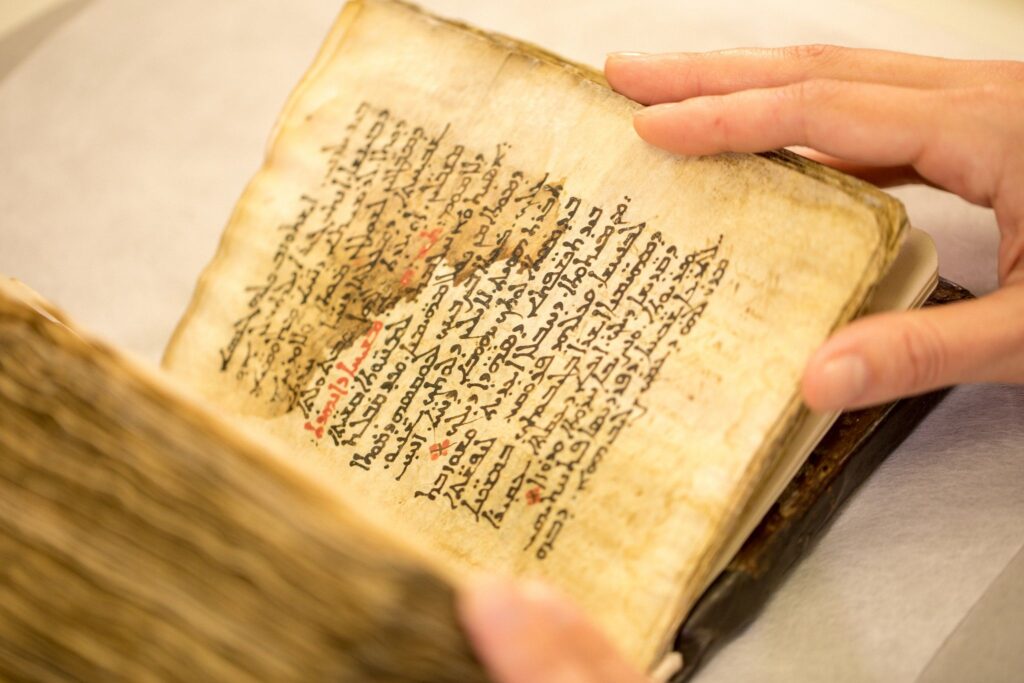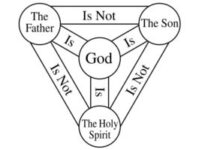
Table of Contents
What are angels in theology?
The question of what angels are in theology spans multiple religious traditions, philosophical insights, and cultural beliefs. These celestial beings, often portrayed with wings and a halo, are more than mere symbols; they represent complex theological constructs.
In various religious traditions, angels are considered divine messengers, acting on behalf of God or other higher powers. They are spiritual beings without physical form, although they may assume human appearance to communicate with people. Some traditions hold that angels constantly praise the divine, reflecting pure worship and devotion.
Beyond their role as messengers, angels are also considered protectors and guides. They might be sent to shield people from harm, guide them toward the right path, or even intervene in human affairs to carry out the divine will.
The Origin of Angels in Theology
The concept of angels has deep historical roots, going back to ancient civilizations. They are not confined to a particular culture or religion but appear in various forms across different belief systems.
Angelic beings in Christianity
In Christianity, angels are often considered to be God’s messengers. They appear in numerous biblical accounts, such as Gabriel’s announcement to Mary about the birth of Jesus. The Christian theological view of angels also includes their roles as warriors, such as Michael leading the heavenly army against Satan’s forces.
Angels in the Abrahamic religions
Angels are not exclusive to Christianity. They play significant roles in Islam, like Jibril (Gabriel), who conveyed God’s revelation to the Prophet Muhammad. In Judaism, angels like Michael are seen as protectors of Israel. These shared concepts create a rich tapestry that intertwines these major religious traditions, reflecting similar yet distinct understandings.
The Different Types and Hierarchy of Angels
The idea of various types and hierarchies of angels is intriguing and complex. Different religious traditions offer varying classifications and understandings.
Biblical angels explained
In the Bible, angels are mentioned in numerous contexts. Cherubim guard the Garden of Eden, Seraphim surround God’s throne in Isaiah’s vision, and archangels like Michael fight against evil. These biblical angels are often seen as messengers, warriors, or protectors, each with unique characteristics and responsibilities.
Angelic hierarchy in theology
Various theologians have proposed intricate angel classifications, often called angelic hierarchy. For instance, in Christian theology, the hierarchy includes nine orders, categorized into three triads, with the Seraphim being the highest order and the angels the lowest. These classifications reflect different roles, functions, and proximity to the divine.
Understanding angelic hierarchy
Understanding the angelic hierarchy can be challenging, given its complexity. Recognizing that these hierarchies are human attempts to systemize and make sense of the celestial world is essential. They are often based on scriptural interpretations, theological reasoning, and philosophical insights, providing a structured framework for engaging with these spiritual beings.
Archangels in Christian Theology
In Christian theology, archangels hold particular positions. Archangels like Michael, known as a warrior, and Gabriel, a messenger, are prominent figures in biblical narratives. They often carry out vital tasks, representing God’s direct intervention in human affairs.
The Roles and Significance of Angels
Angels are multifaceted, and their roles and significance extend beyond symbols or metaphors.
Role of Angels in the Bible
In the Bible, angels are seen as God’s emissaries, delivering messages, guiding people, and sometimes carrying out divine judgment. They play essential roles in key events, such as the destruction of Sodom and Gomorrah or the protection of Daniel in the lions’ den. Their presence adds depth and complexity to the biblical narrative, weaving a rich tapestry of divine interaction with humanity.
Guardian angels in Christianity
The concept of guardian angels is comforting to many Christians. It embodies the belief that God’s care and protection are personal and intimate. Though not explicitly detailed in the scriptures, the idea that each person has a heavenly guardian watching over them is deeply ingrained in Christian thought, resonating with believers of all ages.
Understanding guardian angels
To fully grasp the concept of guardian angels, exploring both theological writings and popular beliefs is crucial. While some theological traditions may not explicitly endorse the idea, it remains a pervasive and cherished belief. This intersection of doctrine, personal faith, and cultural expression enriches the understanding of guardian angels.
Angelology: A Deeper Dive
The study of angels, or Angelology, is an intriguing field that bridges religious beliefs, theological insights, and human imagination.
Angelology in religious studies
Angelology encompasses the study of angels across various religious traditions, including Christianity, Islam, and Judaism. It explores angels’ nature, roles, functions, and symbolism, offering a nuanced understanding beyond simple categorization.
The theological significance of angels
The theological significance of angels is profound. They are not mere heavenly beings but represent broader theological concepts, such as God’s transcendence, immanence, love, judgment, and providence. They also serve as metaphors for divine attributes and links between the earthly and celestial realms.
Conclusion
Understanding the role of angels in theology opens up a vast world of insights, meanings, and spiritual exploration. These celestial beings are not mere figments of imagination but integral parts of religious beliefs and theological understanding. They continue to inspire, intrigue, and guide human thought, reflecting our unending quest for the divine.
FAQs
- What is the primary role of angels in Christianity? In Christian theology, angels serve multiple roles. They are considered God’s messengers, delivering divine messages to humans. They also act as protectors, guiding and shielding people from harm. Some angels, such as archangels, have specific functions and play prominent roles in essential biblical narratives.
- Are angels present in all Abrahamic religions? Yes, angels are significant figures in Christianity, Islam, and Judaism. While their characteristics and responsibilities might vary among these religions, the underlying concept of angels as divine messengers and servants remains a common theme.
- Do all humans have guardian angels in Christian beliefs? The belief in guardian angels is a cherished idea within many Christian traditions, although it is not explicitly outlined in the Bible. Many Christians hold that God assigns each person a heavenly guardian to watch over them, providing protection and guidance.
- How are archangels different from other angels? Archangels are considered higher-ranking angels in various theological traditions. They are often entrusted with more significant tasks or messages and are seen as leaders among angels. Archangels like Michael and Gabriel have unique roles in Christian theology and appear in pivotal biblical stories.
- Is there a specific study related to angels? The study of angels, known as Angelology, is a specialized field within theology. It explores angels’ nature, roles, hierarchy, and symbolism across various religious traditions. This study provides a deeper understanding of angels and their theological significance.
- What does the angelic hierarchy mean? The angelic hierarchy refers to classifying and ordering angels into different ranks or levels. This hierarchy often reflects their closeness to the divine and their specific roles and functions. The concept varies across religious traditions and has been explored by theologians like Dionysius the Areopagite and Thomas Aquinas.
- How are angels depicted in religious texts? Angels are depicted in diverse ways in religious texts. The Bible describes them as radiant beings, often accompanied by brilliant light. They may appear in human form or as awe-inspiring celestial beings. Their descriptions often emphasize their purity, beauty, and otherworldly nature.
- Are angels considered supernatural beings? Angels are considered supernatural in that they exist outside the natural physical world. They are spiritual beings without material bodies but can assume physical forms to interact with humans. They transcend our usual understanding of physical laws and are considered part of the divine realm.
- What is the role of angels in non-Christian religions? Angels play roles in various non-Christian religions, such as Hinduism and Zoroastrianism. In Islam, angels have essential functions like delivering revelations and recording deeds. In other traditions, angels might symbolize specific spiritual principles or act as intermediaries between humans and the divine.
- Can people communicate with angels? Many religious traditions and spiritual practices believe in the possibility of human-angelic communication. This communication might occur through prayer, meditation, or mystical experiences. Some individuals claim to have personal encounters with angels, experiencing guidance, comfort, or revelation. However, these beliefs and experiences vary widely and can be deeply personal and subjective.


